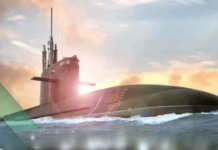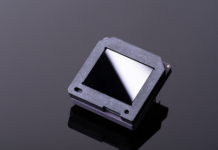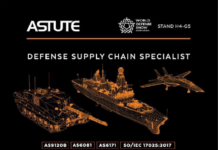
In-Demand Skills in the Space Tech:
The final frontier is no longer a distant dream; it’s a bustling, multi-billion-dollar industry. The new space race, fueled by private companies like SpaceX and Blue Origin alongside national agencies like NASA and ISRO, is creating an unprecedented demand for a diverse range of talent. While the image of the astronaut often captures the public imagination, the reality is that for every person who travels to space, there are thousands on the ground making it possible. If you’re looking to launch your career into this exciting sector, understanding the most in-demand skills is your first mission.
The Bedrock: Engineering and Scientific Expertise
At its core, the space industry is an engineering marvel. It relies on professionals who can design, build, test, and operate the incredibly complex systems required for spaceflight and exploration. This is where the highest demand currently lies.
- Aerospace & Propulsion Engineers: These are the architects of rockets, spacecraft, and satellites. They need a deep understanding of aerodynamics, thermodynamics, orbital mechanics, and the powerful propulsion systems that defy gravity.
- Software Engineers & Developers: Modern spacecraft are sophisticated computers. Software is the nervous system that controls everything from flight trajectories and life support to data transmission and autonomous operations. Proficiency in languages like C++, Python, and real-time operating systems is critical.
- Electrical & Avionics Engineers: These experts design the electronic “brains” and communication systems of a spacecraft. They work on power systems, navigation, guidance and control (GNC) systems, and the intricate wiring that connects everything.
- Materials Scientists: Developing lightweight, durable materials that can withstand the extreme temperatures, radiation, and vacuum of space is crucial for building next-generation spacecraft and habitats.
- Robotics & AI/ML Specialists: From rovers exploring Mars to robotic arms assembling structures in orbit, robotics and artificial intelligence are fundamental. Experts who can design autonomous systems and machine learning models for navigation, data analysis, and operational efficiency are highly sought after.
For those passionate about the “why” behind the “how,” a strong foundation in science is key. Pursuing space related courses that cover astrophysics, planetary science, astrobiology, and remote sensing can open doors to roles in mission science, research, and data analysis, helping to define the very objectives of space missions.
Beyond the Blueprints: The Interdisciplinary Skills That Matter
While technical prowess is non-negotiable, the complexity of space missions requires more than just engineering knowledge. A set of interdisciplinary and soft skills are becoming increasingly vital for success.
- Systems Thinking: A rocket has millions of components. A systems thinker can understand how all these parts interact, anticipate cascading failures, and see the big picture. This holistic view is essential for managing the immense complexity of space projects.
- Data Science & Analytics: Space missions generate colossal amounts of data, from satellite imagery to telemetry. Professionals who can analyze this data to extract meaningful insights, monitor climate change, track space debris, or predict system performance are indispensable.
- Cybersecurity: As spacecraft become more connected and reliant on software, protecting them from cyber threats is a top priority. Cybersecurity experts with experience in securing critical infrastructure are in high demand.
- Project Management: Keeping multi-year, billion-dollar projects on schedule and within budget requires exceptional project management skills, especially with the added complexities of aerospace regulations and safety protocols.
- Communication & Collaboration: Space projects are massive team efforts, often involving international collaboration. The ability to communicate complex ideas clearly and work effectively in diverse, multidisciplinary teams is crucial.
Charting Your Course: Education and Specialization
A career in the space industry almost always begins with a strong educational foundation in a STEM field. While many engineering disciplines are applicable, specialized programs can provide a significant advantage. Aerospace courses, for example, are specifically designed to equip students with the unique knowledge required for designing and operating aircraft and spacecraft. These programs delve deep into subjects like propulsion, flight dynamics, and space systems engineering, providing a direct and focused pathway into the heart of the industry. Many universities and institutions now offer dedicated degrees and certifications in space systems, robotics, and other relevant fields, often incorporating hands-on projects that provide invaluable real-world experience.
Conclusion: A Universe of Opportunity Awaits
The space tech industry is a universe of opportunity, offering a wide array of challenging and rewarding career paths for those with the right skills and passion. From the engineers who design the launch vehicles to the data scientists who interpret cosmic data, and yes, even the astronauts who venture into the void, a diverse and talented workforce is needed to propel humanity’s next great adventure. By building a strong technical foundation, cultivating essential interdisciplinary skills, and pursuing specialized education, you can position yourself to be a part of this exciting and rapidly expanding frontier. The future is being built not just on Earth, but among the stars.
















